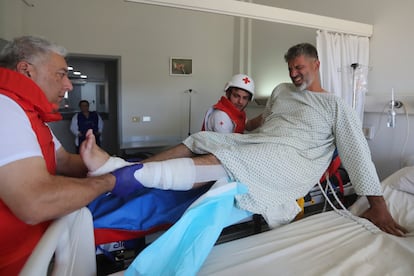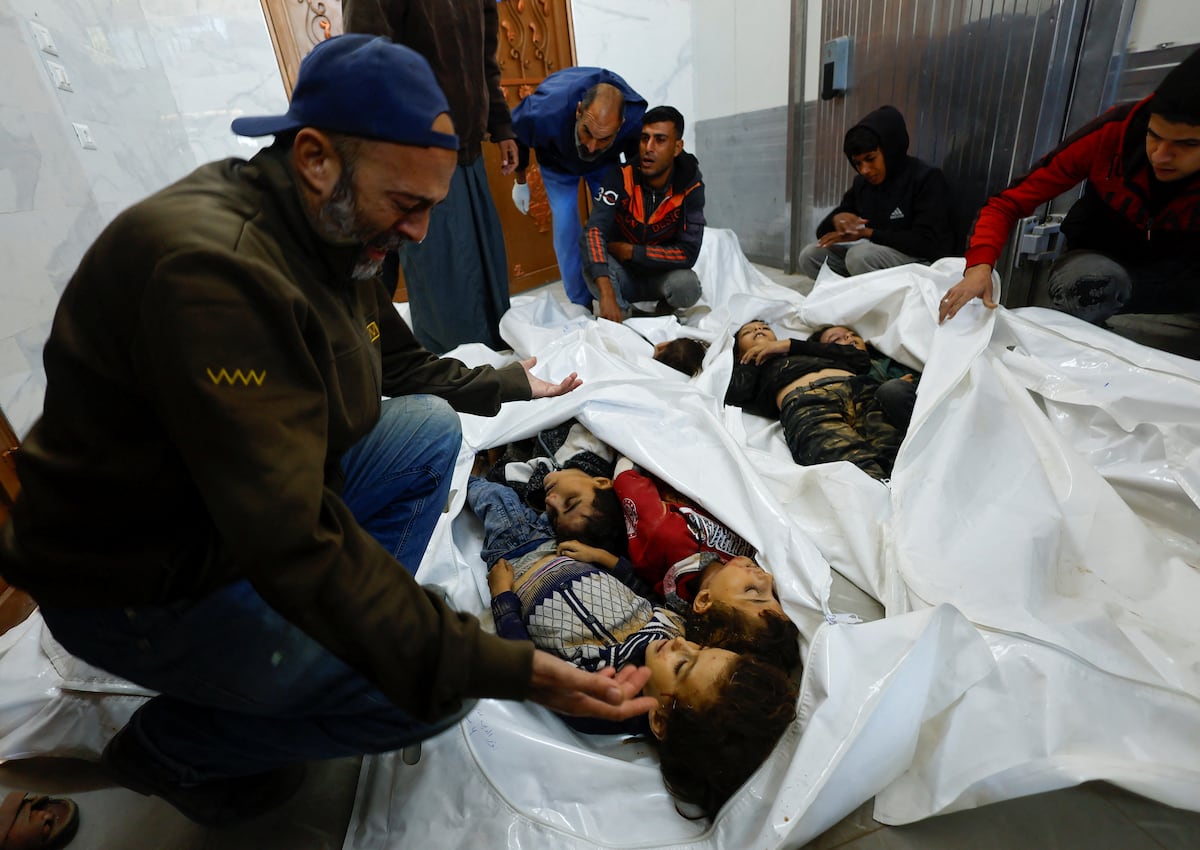The Israeli army killed three journalists in an early Friday bombing of the bungalows where they were sleeping in southern Lebanon. They are Ghassan Najjar (cameraman) and Mohammad Reda (sound technician), from Al Mayadeen, a Lebanese channel very close to Iran and its ally Hezbollah; and Wissam Qassim, cameraman for Al Manar, the Lebanese party-militia network. They were not near the combat front, but resting in Hasbaya, a town that Israel had not attacked before or requested its evacuation, unlike dozens of others, some very nearby. Everything indicates that the three were the target: they shared accommodation with colleagues from other chains, who reported a localized bombing. The country’s Information Minister, Ziad Makary, speaks of a “war crime.”
The attack – on which the Israeli army has not commented – has also left seven people injured to varying degrees, according to the Ministry of Health. Images captured by the media at the scene show several bungalows reduced to rubble and cars clearly marked with the word “Press” covered in dust. In the complex there were 18 journalists from seven Arab media outlets, such as Al Jazeera, Al Yadid, Sky News in Arabic and MTV Lebanon.

The bombing took place around four in the morning (three in mainland Spain). “The Israeli enemy waited for them to rest at night to betray them while they slept […] “It was a premeditated murder,” the Minister of Information wrote on the social network X.
Authorities, media and journalists’ unions have condemned the attack during the day. Lebanese Prime Minister Nayib Milkati sees “an attempt [israelí] to intimidate the media to conceal the crimes and destruction” that it is leaving in the country, particularly in the last month, when it began an offensive that has claimed nearly 2,000 lives and displaced a fifth of the population. He will include it in the protest dossier to the UN Security Council, he added.
Already on Wednesday, Israeli military aircraft attacked the Beirut headquarters of Al Mayadeen, killing one person and wounding five. The new bombing reveals how Israel has been expanding its objectives, transcending the military. On the one hand, with direct attacks against government institutions, in which Shiite mayors and councilors have been killed. The main one, last week, Ahmad Kahil, from Nabatiye, a city of 40,000 inhabitants before the war. On the other hand, with the campaign against Al Qadr al Hasan, Hezbollah’s microcredit network that has now been put in the spotlight, considering it a cover for its financing.
Dozens of this network’s headquarters have been bombed in recent days, mainly in the south of the country and the suburbs of Beirut. Added to this are the attacks against ambulances and paramedics, whom he accuses of transporting weapons. They already started in October 2023, but have multiplied in recent weeks.
The Israeli army has killed another 10 information professionals in Lebanon since the start of the clashes between Israel and Hezbollah, on October 8, 2023. One of the most notorious cases is that of Issam Abdullah, hired by the news agency Reuters. In the first days of crossfire, he was hit by an Israeli tank shot that also wounded several of his companions, some seriously. Subsequent investigations by international human rights organizations and media outlets on the ground agree that the shooting was intentional.
The number of reporters killed in Lebanon is small compared to that in Gaza in the same period, the place in the world where the most journalists have died in such a short time: around 130.







